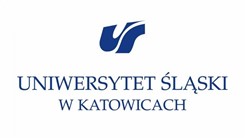
The project: „The role of spontaneous vegetation in shaping soil ecological networks and carbon sequestration on mineral extraction areas”
PhD Supervisor: Dr hab. Gabriela Woźniak, Faculty of Natural Sciences, Institute of Biology, Biotechnology and Environmental Protection, University of Silesia in Katowice
PhD Advisor: Professor Santiago Soliveres Codina, University of Alicante



Highlights:
- The project investigates how vegetation shapes soil microbial communities and ecological networks in post-industrial “Novel Ecosystems” such as coal heaps, metal heaps or sand pits.
- It focuses on two plant species, Calamagrostis epigejos and Solidago gigantea, and their impact on soil carbon sequestration and microbial activity through litter input and root exudates.
- The research applies biochemical and molecular tools to analyse soil carbon content, microbial community structure (PLFA, NGS), and enzymatic activity to identify factors influencing soil ecosystem development.
Profits you get being a member of T4EU PhD Tracks:
- Acquiring new knowledge from an expert in another country.
- The opportunity to broaden my horizons both scientifically and culturally.
- The possibility to practice using my scientific English in discussions related to my area of research.
Project description:
The study will focus on three types of post-exploitation areas: coal heaps, zinc-lead heaps, and sand pits, which are all classified as Novel ecosystems and are characterized by the challenging abiotic conditions for both plants and microorganisms. Two plant species common in these areas were chosen, invasive Solidago gigantea and native, however expansive Calamagrostis epigejos for the analyses regarding their impact on soil microbiota activity and structure, ecological networks, and carbon sequestration.





